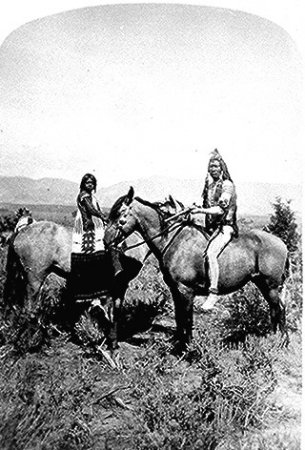Welcome to the tale of the Utah Black Hawk War, a pivotal chapter in the history of the American West. Though not as widely known as some other conflicts, the events of the Black Hawk War in Utah were crucial in shaping the state’s history and its relations with Native American tribes. Let’s dive into the causes and key events that defined this period.
The story begins in the mid-19th century, a time when tensions were rising between the Native American tribes and the increasing number of settlers arriving in the Utah Territory. The passage of pioneers and settlers through traditional Native lands disrupted the lives and economies of the indigenous peoples, leading to mounting frustrations. At the center of these tensions was the Ute tribe, led by a charismatic and strategic leader named Black Hawk.
Black Hawk, whose Ute name was Antonga, was born around 1830 into a world rapidly changing due to the encroachment of white settlers. Known for his diplomatic skills and prowess in battle, Black Hawk sought to protect his people’s way of life. His leadership came at a time when the U.S. government and settlers were pushing for more land under the doctrine of Manifest Destiny, leading to inevitable conflicts over resources and territory.
The Black Hawk War in Utah was triggered by a series of misunderstandings and provocations. Tensions boiled over in 1865 when a confrontation over cattle theft escalated into violence. Black Hawk, recognizing the threat posed by the settlers, organized a series of raids to reclaim resources and defend his people. His campaign was notable for its strategic guerrilla tactics, which allowed the Ute warriors to strike quickly and effectively, disrupting the settlers’ efforts to expand further into Ute territory.
This conflict was not isolated. It was part of a broader pattern of Native American resistance against U.S. expansion across the continent. The war lasted from 1865 to 1872 and involved numerous battles and skirmishes, affecting the lives of thousands of settlers and Native Americans. The conflict led to significant loss of life and property, and it eventually resulted in the displacement of many Ute people from their ancestral lands.
As the war dragged on, Black Hawk eventually recognized the overwhelming odds against his people and sought peace. In 1872, he formally surrendered, marking the end of the Black Hawk War. Despite the cessation of active hostilities, the repercussions of the war were profound. It led to the forced relocation of many Ute communities onto reservations, a legacy that still affects the descendants of those who fought in the conflict.
Today, the story of the Black Hawk War is remembered as a testament to the resilience and determination of the Native American tribes who stood their ground against overwhelming forces. It serves as a reminder of the complex and often painful history of the American West.
As you reflect on this period, consider the lasting impacts on both the Native American communities and the settlers who sought to make Utah their home. The Utah Black Hawk War is a story of conflict, resilience, and ultimately, change, that has shaped the cultural and historical landscape of Utah.






